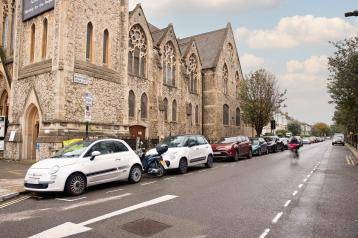
People on lower incomes and/or from an ethnic minority background can find it harder to access healthcare. PICTURE: GETTY IMAGES
H&F this week has welcomed the commitment by our local NHS to tackle inequalities in healthcare by addressing difficult issues like structural racism and poverty.
At the moment, people on lower incomes and/or from an ethnic minority background can find it harder to access healthcare, receive a high-quality service and get a good health outcome.
Over the next five years, the new Integrated Care System (ICS) for North-West London has pledged to transform care to ensure greater equality and better outcomes for people of all backgrounds.
Councillor Ben Coleman, H&F's Deputy Leader and Cabinet Member responsible for Health and Social Care, commented: "The first step towards tackling a problem is to recognise it, so I particularly welcome North-West London NHS's acknowledgment of structural racism as a key cause of health inequalities."
He added: "The council has already started to work in co-production with Black residents and NHS allies on airing the issues and making changes so that everyone gets good treatment no matter their background.
Our aim is real action that improves people's lives. Only in this way will we build trust."
Integrated Care System report
In a report Addressing health inequality across North West London (pdf 2.5MB), which underpins the initiative, the ICS says, "The Covid-19 pandemic has both increased health inequality in North West London and shone a spotlight on it."
It pledges to "acknowledge structural racism as one of the key causes of current health inequalities and listen to and work with our BAME communities to develop solutions that influence long term change and tackle differential outcomes and experience."
The NHS says people from a Black, Asian or other ethnic minority background are more likely to live in less affluent areas, as are people who work in lower paid jobs or are less well educated.
Covid mortality rates in these areas were more than double those in the least deprived areas. People living there are also more likely to have a disability and/or a long-term condition, and to have higher diagnosis and death rates.
A starting point for change will be community conversations across North-West London with residents, who will be asked to help shape the future of local healthcare.
In H&F, we will be bringing residents from all communities and the NHS together to hear people's lived experience and get health services working equally for everyone. If you would like to be involved in these conversations, please contact H&F Community Connect on 0800 145 6095.
Want to read more news stories like this? Subscribe to our weekly e-news bulletin.




